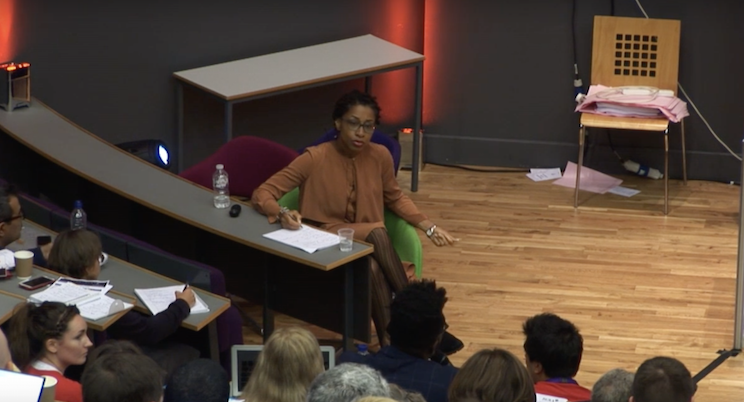Report: black female professors must overcome racism and bullying
On their career paths towards a professorship, black female academics at British universities face racism, bullying and institutional neglect. That is the damning conclusion of a new report that explores the experiences of 20 of the total 25 black female professors in the United Kingdom.
The report, commissioned by the University and College Union (UCU), was published on Monday. Through one-on-one interviews, the study examined the career experiences of female professors from African, Caribbean or other black backgrounds, who make up only 0.1% of professors working at British universities. The report’s author, education equity researcher Nicola Rollock, called the accounts of the women’s experiences shocking. “What they are saying is that their entire careers have been characterized by abuse and exclusion, and that their race has been the key to that,” she told The Guardian.
The interviewed professors detail their experiences in UK universities as they progressed to professorship. The women report being verbally abused, mistaken for clerical staff and systematically overlooked for promotion. Two women took legal action after incidents of unfair treatment and harassment. A “culture of explicit and passive bullying” persists on British campuses, the report concludes, in which black female academics experience unfair treatment in recruitment and promotion rounds.
Failure of the system
“The under-representation of black female professors in higher education must be understood as a failure of the system to support them,” Rollock writes in the report. To transform the system, she recommends that universities be more transparent about decision-making processes in professorial appointments, that dedicated initiatives are in place at universities to provide career support for black female academics, and that institutions establish a culture of no tolerance to explicit and subtle forms of bullying and harassment.
To create greater awareness of passive bullying, the report also recommends that universities introduce trainings for academic staff, focused on white privilege, power and racial micro-aggressions. Such trainings should be mandatory for academics with managerial positions, the report says.

Dr. Nicola Rollock speaking at the University of Sussex in 2017 (image: still from BERA UK video)
Dutch universities
The study conducted by Nicola Rollock is the first of its kind in the UK. In the Netherlands, no similar studies have been carried out. Although the career experiences of black female professors in the Dutch context have not been studied and official figures on their numbers are not available, there is no question that non-white female academics are heavily under-represented in professorial positions across the Netherlands.
Cultural anthropologist Gloria Wekker, who became the first black female professor to be appointed at the University of Utrecht in 2001, has spoken and written extensively on racial inequality in Dutch higher education. She has pointed out that diversity is often understood and talked about in terms of gender at Dutch universities, but hardly in terms of race. According to Wekker, tackling racial inequality should be as much a priority as tackling gender inequality.
Similarly, Nicola Rollock observes that while black female academics in the UK must navigate a system that discriminates against them on the basis of both their sex and their race, efforts to promote diversity and equality tend to focus on gender. In her report, Rollock states: “Wider higher education initiatives on gender, which I have seen increase during my time in higher education, have failed to take seriously experiences at the intersection of both race and gender.”
Tilburg University
Although Tilburg University acknowledges that its professorial staff is lacking diversity in terms of gender as well as cultural and ethnic background, the university’s primary diversity programs, such as the Philip Eijlander Diversity Program, are focused solely on improving gender equality.
The university’s Diversity and Inclusion policymaker, Ilja Hijink, informed Univers that the different faculties of Tilburg University all value gender equality and diversity in the broadest sense, and that the various Schools will actively further their efforts to promote an inclusive working environment in the coming months and years. These efforts include inclusive recruitment, mentoring programs, intercultural competence trainings, and cross-cultural communication trainings for academics with managerial responsibilities.






